Clearing 2025
Clearing places have been filled on this course for 2025 entry.
International Relations
UCAS code L240
- Study mode
- Full-time
- Duration
- 3 years
- Start date and application deadlines
-
- Start date
Clearing places have been filled on this course for 2025 entry.
UCAS code L240
Studying International Relations brings a focus on power, authority, citizenship, conflict and cooperation in the world around us, it is an opportunity to engage with politics on an international scale and to think deeply about the changing world.
Current international trends are interpreted in a historical perspective yet with a view to future directions and likely developments. Politics affects all our lives and with a deeper understanding you can join in conversations that address key issues.
You will have the opportunity to learn from internationally recognised scholars and to hear about their cutting edge research examining a wide range of aspects of international relations. You will explore political ideas, systems and processes, learn to question and to challenge, how to collect data, develop knowledge, construct arguments and communicate your findings in different ways.

We’re proud to announce we’ve been awarded a Gold rating for educational excellence.
Discover what you'll learn, what you'll study, and how you'll be taught and assessed.
In year one you will take Foundations in politics and Foundations in international politics, Comparative Politics and a study skills module Studying Politics Successfully: Skills and Methods that will aid you in developing all the tools you need to study International Relations effectively throughout your degree programme. You will also have the option to take either British Politics or Political Theory modules and a final 30 credits to study courses elsewhere in the University such as languages which can be an excellent companion to an International Relations degree.
Students take 30 credits of required modules and 30 credits of optional modules in each semester.
Students must take either POLI101 and POLI102 or POLI105.
POLI105 is a ‘year-long’ module and represents 15 credits in each semester.
Additional optional modules from Open Languages may be taken up to a maximum of 30 credits.
Programme details and modules listed are illustrative only and subject to change.
In year two you will select from a pool of modules including International organisations, International political economy, Security in a globalised world, Foreign analysis and world politics, and Politics of international Human Rights as well as having the choice of a wide variety of modules that deal with the international political sphere. These include, but are not limited to American politics and society, Regimes and their consequences, and Gender and Feminist politics: core concepts and theories.
Students take 60 credits of optional modules in each semester.
Students must take 45 credits of specifically International Relations modules across the year.
POLI200 is subject to an appropriate placement being sourced. Students cannot register directly for this module.
Registration onto HLAC220 is only for students planning to undertake a work placement year.
Programme details and modules listed are illustrative only and subject to change.
In year three modules are available on Identity in contemporary international politics; World politics and the world economy, Comparative peace processes and Africa-China relations in a changing global order. You can also choose from a range of modules that don’t have an explicit international dimension.
Students take 60 credits of optional modules in each semester.
POLI342, POLI343 and POLI354 are subject to a suitable placement being sourced. Students cannot register directly onto these modules.
There is an application process for POLI342 and POLI343. Students accepted onto POLI342 module take POLI401 (Dissertation). Students cannot take both POLI342 and POLI343.
POLI339 is a ‘year-long’ module and represents 15 credits in each semester. There is an application process for this module. Students cannot register directly onto this module
POLI401 is a ‘year-long’ module and represents 15 credits in each semester.
Programme details and modules listed are illustrative only and subject to change.
You will explore international political ideas, systems and processes and learn how to collect data, develop knowledge and construct arguments.
Research-connected teaching is initiated in the first year with introductions to quantitative, qualitative, theoretical, and critical methodologies, which are then embedded in second- and third-year modules so that students can evaluate and apply the methodologies to construct their own analyses. Though our lectures are interactive, our seminars, workshops, computer lab sessions, dissertations, and placements form the core of our active learning approach.
We use a rich variety of assessment methods to develop students’ various skills. Essays, exams, and presentations enable to students to practice core academic writing and speaking skills, while innovative assessments such as blog posts, reflective logs, group projects, podcasts, radio broadcasts and speeches expand our authentic assessment, enabling students to deploy transferable skills in various formats. Digital fluency is also developed in different ways, including sourcing relevant material, using online learning platforms and tools, producing audio and visual materials, word processing and statistical analysis.
We have a distinctive approach to education, the Liverpool Curriculum Framework, which focuses on research-connected teaching, active learning, and authentic assessment to ensure our students graduate as digitally fluent and confident global citizens.
The Liverpool Curriculum framework sets out our distinctive approach to education. Our teaching staff support our students to develop academic knowledge, skills, and understanding alongside our graduate attributes:
Our curriculum is characterised by the three Liverpool Hallmarks:
All this is underpinned by our core value of inclusivity and commitment to providing a curriculum that is accessible to all students.
The qualifications and exam results you'll need to apply for this course.
| Qualification | Details |
|---|---|
| A levels |
BBC |
| BTEC Level 3 national extended diploma |
DMM. |
| BTEC combinations |
BTEC National Diploma MM plus B at A level; BTEC National Extended Certificate M plus BB at A level. |
| Welsh Baccalaureate Advanced |
C in the Welsh Baccalaureate, plus BC at A level |
| Access |
Pass relevant Access to HE Diploma with 45 Level 3 credits with 27 at Distinction and 18 at Merit |
Studying with us means you can tailor your degree to suit you. Here's what is available on this course.
University of Liverpool students can choose from an exciting range of study placements at partner universities worldwide.
Broaden your world by spending an additional year of study at a partner university abroad following your second year of study.
Take a semester of your second year of study at one of our worldwide partner institutions.
Spend a summer abroad on a study placement or research project at one of our worldwide partner institutions.
Every student at The University of Liverpool can study a language as part of, or alongside their degree. You can choose:
With a combined degree, you can study two subjects as part of the same degree programme.
Students studying International Relations BA at XJTLU can study this course at the University of Liverpool. Read more about International Relations BA (Hons) as part of the 2+2 programme .
The natural next step for ambitious XJTLU students who want to build a brilliant career.
The department of Politics is part of the School of Histories, Languages and Cultures and is based in 8-14 Abercromby Square. Students will be taught in a variety of buildings across campus.
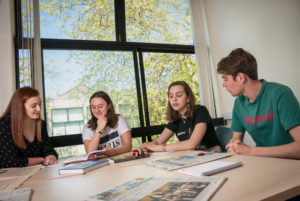
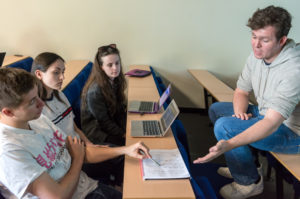
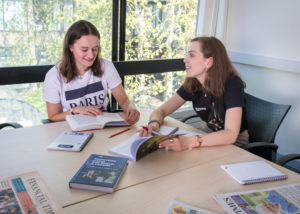

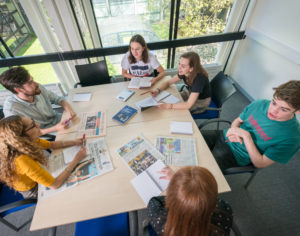
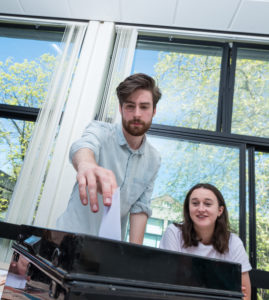
From arrival to alumni, we’re with you all the way:

Want to find out more about student life?
Chat with our student ambassadors and ask any questions you have.
An International Relations degree from the University of Liverpool offers you the chance to develop a variety of transferrable skills, such as critical thinking, problem solving, written and verbal communication, teamwork, confidence and digital fluency.
Our graduates progress to a range of careers including local government, political parties, NGOs, charities and human rights organisations, civil and diplomatic services, market research, media and communications and public relations.
Previous employers include:
80% of politics students are in work and/or further study 15 months after graduation.
(Discover Uni, 2018-19.)
Your tuition fees, funding your studies, and other costs to consider.
Full-time place, per year - £9,535
Year abroad fee - £1,430 (applies to year in China)
Full-time place, per year - £24,100
Year abroad fee - £12,050 (applies to year in China)
The tuition fees shown are correct for 2025/26 entry. Please note that the year abroad fee also applies to the year in China.
Tuition fees cover the cost of your teaching and assessment, operating facilities such as libraries, IT equipment, and access to academic and personal support. Learn more about paying for your studies.
We understand that budgeting for your time at university is important, and we want to make sure you understand any course-related costs that are not covered by your tuition fee. This could include buying a laptop, books, or stationery.
Find out more about the additional study costs that may apply to this course.
We offer a range of scholarships and bursaries that could help pay your tuition and living expenses.
If you’re a UK student joining an undergraduate degree and have a household income below £35,000, you could be eligible for a Liverpool Bursary worth up to £2,000 for each year of undergraduate study.
Apply for an Asylum Seekers Scholarship and you could have your tuition fees paid in full and receive help with study costs. You’ll need to have applied for asylum in the UK, or be the dependant of an asylum seeker, and be joining an eligible undergraduate degree.
If you’ve spent 13 or more weeks in Local Authority care since age 14, you could be eligible for a bursary of £3,000 per year of study. You’ll need to be a UK student joining an eligible undergraduate degree and be aged 28 or above on 1 September in the year you start.
Are you a UK student with a Black African or Caribbean heritage and a household income of £25,000 or less? You could be eligible to apply for a Cowrie Foundation Scholarship worth up to £8,000 for each year of undergraduate study.
If you’re a UK student identified as estranged by Student Finance England (or the equivalent UK funding body), you could be eligible for a bursary of £1,000 for each year of undergraduate study.
Joining a School of Biosciences degree and have a household income of less than £25,000? If you’re a UK student, you could apply to receive £4,500 per year for three years of your undergraduate course.
Do you live in the Liverpool City Region with a household income of £25,000 or less? Did neither of your parents attend University? You could be eligible to apply for a Nolan Scholarship worth £5,000 per year for three years of undergraduate study.
Are you a UK student with a household income of £25,000 or less? If you’ve participated in an eligible outreach programme, you could be eligible to apply for a Rigby Enterprise Award worth £5,000 per year for three years of your undergraduate degree.
Are you a UK student with a household income of £25,000 or less? Did neither of your parents attend University? You could be eligible to apply for a ROLABOTIC Scholarship worth £4,500 for each year of your undergraduate degree.
Apply to receive tailored training support to enhance your sporting performance. Our athlete support package includes a range of benefits, from bespoke strength and conditioning training to physiotherapy sessions and one-to-one nutritional advice.
Joining a degree in the School of Electrical Engineering, Electronics and Computer Science? If you’re a UK student with household income below £25,000, you could be eligible to apply for £5,000 a year for three years of study. Two awards will be available per academic year.
If you’re a young adult and a registered carer in the UK, you might be eligible for a £1,000 bursary for each year of study. You’ll need to be aged 18-25 on 1 September in the year you start your undergraduate degree.
Have a question about this course or studying with us? Our dedicated enquiries team can help.
Last updated 15 August 2025 / / Programme terms and conditions